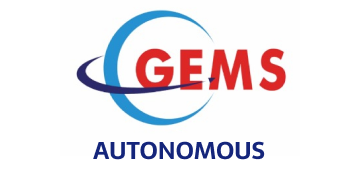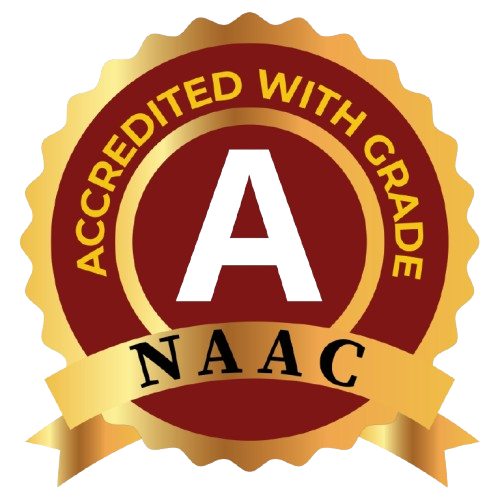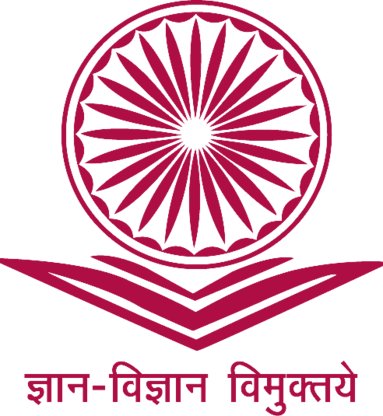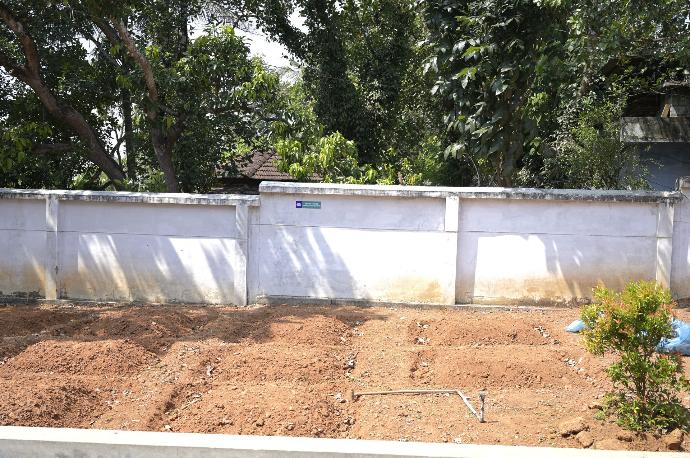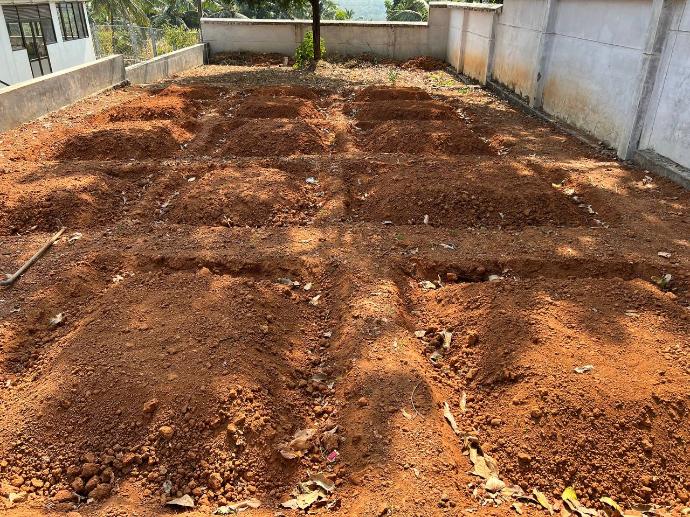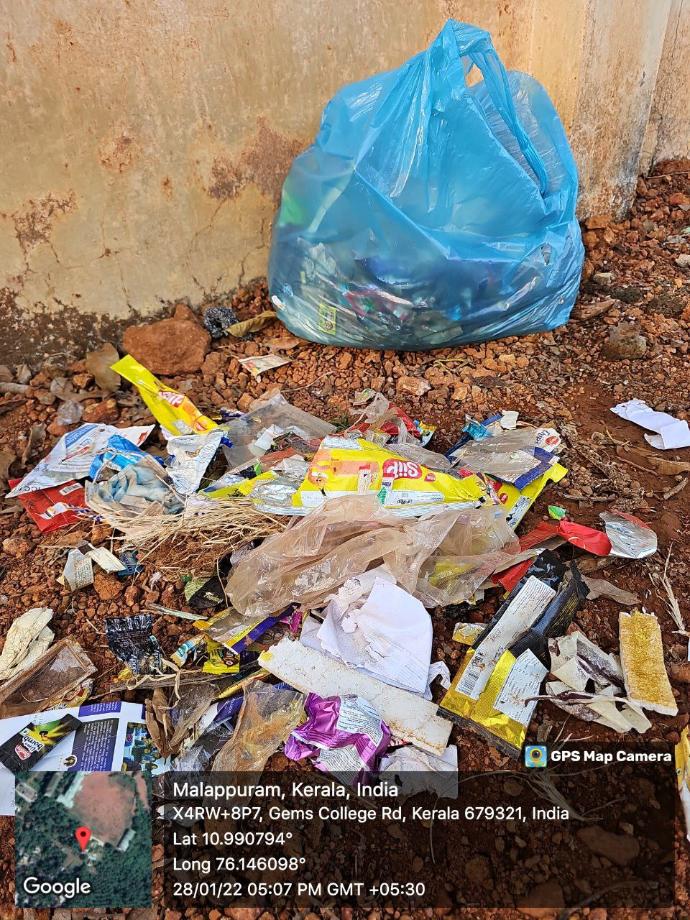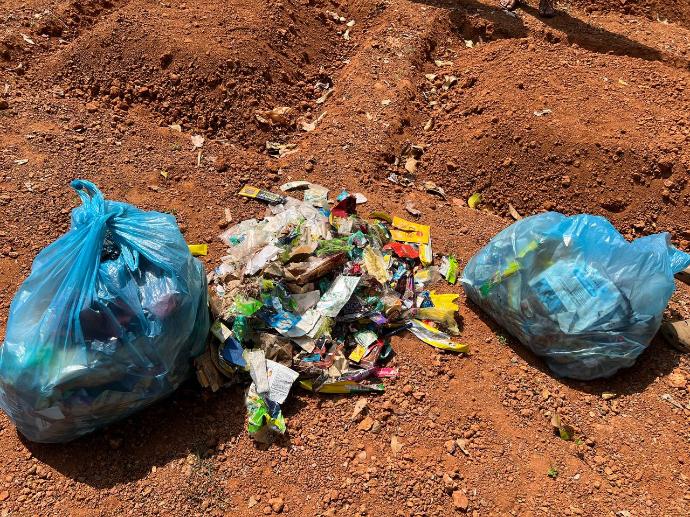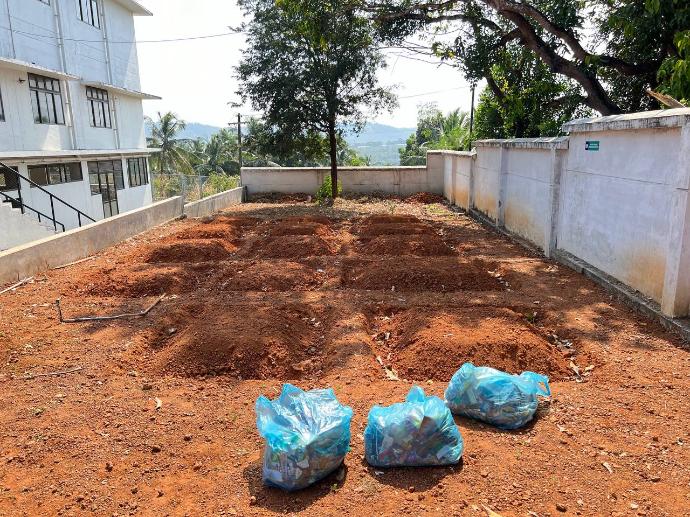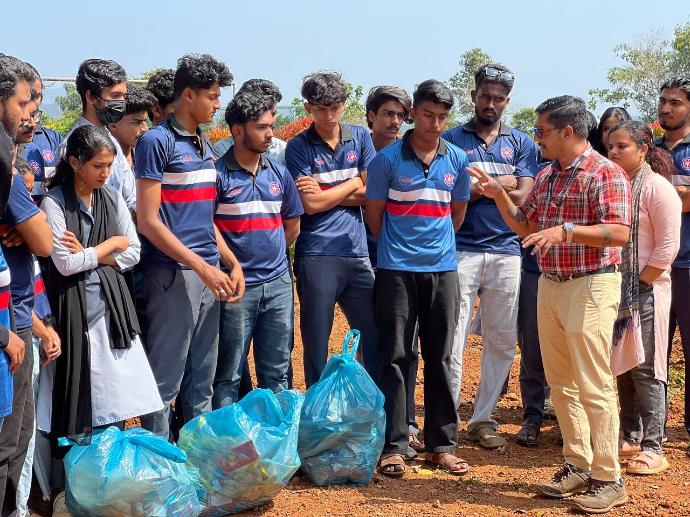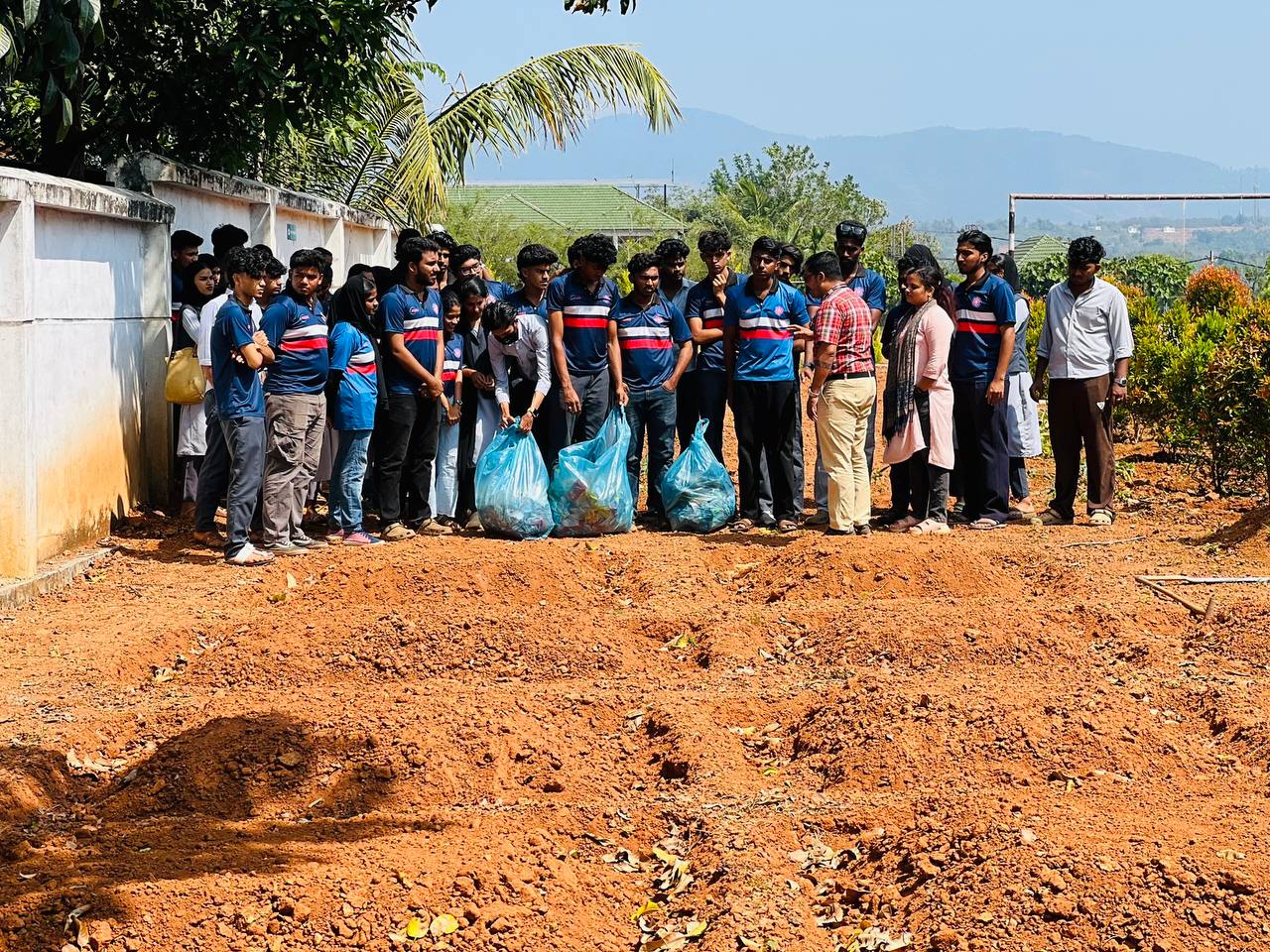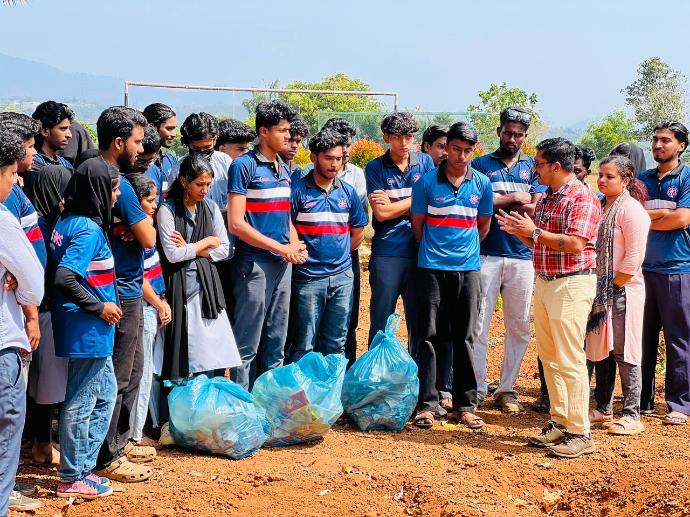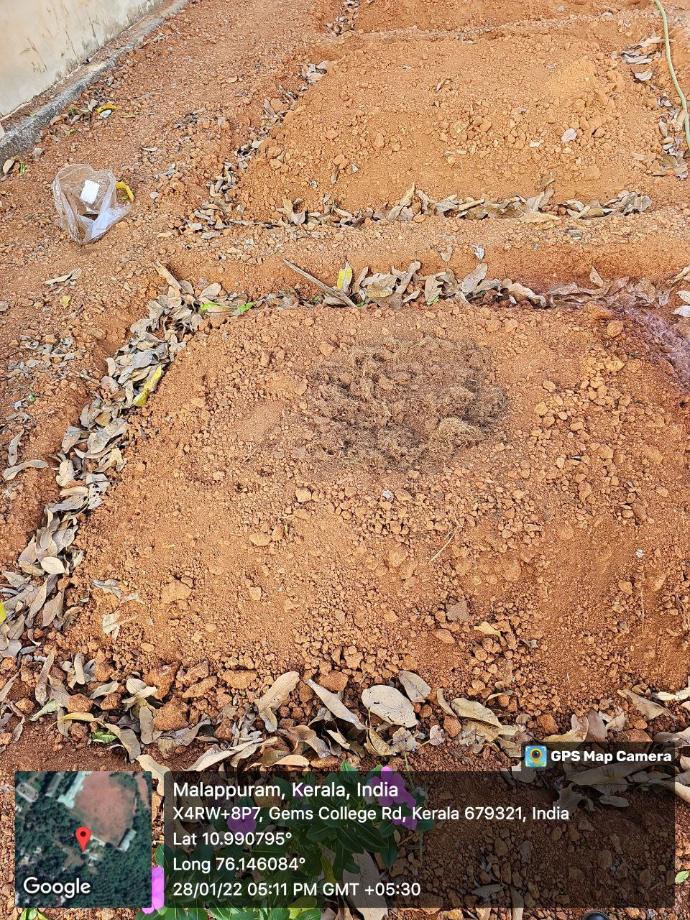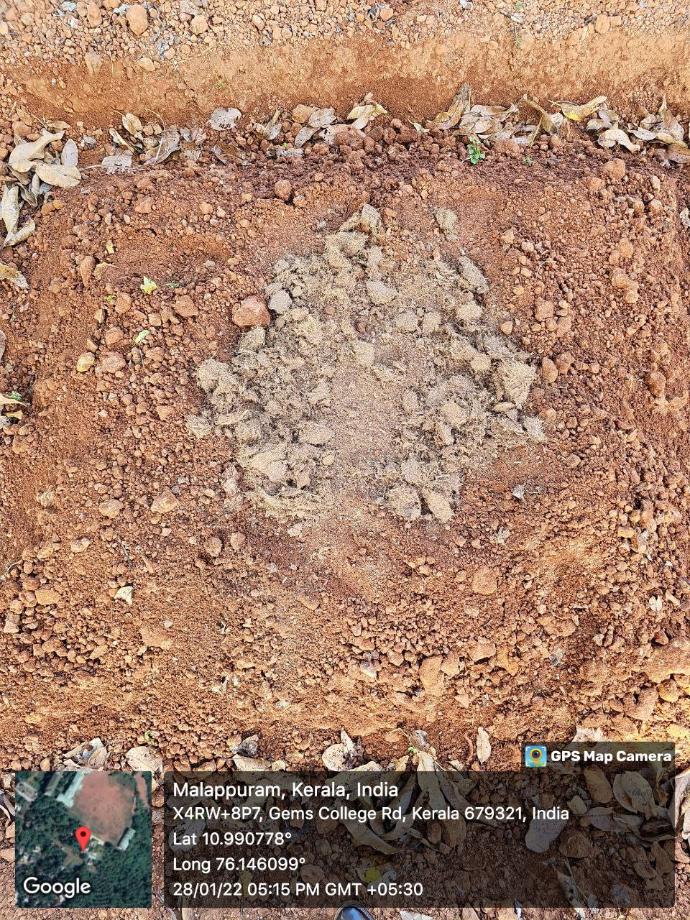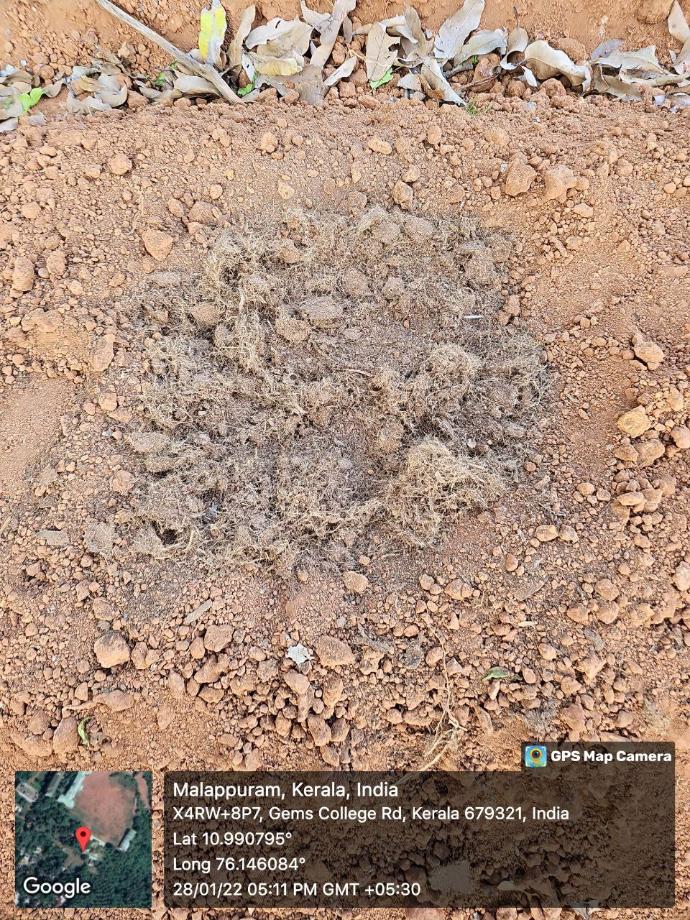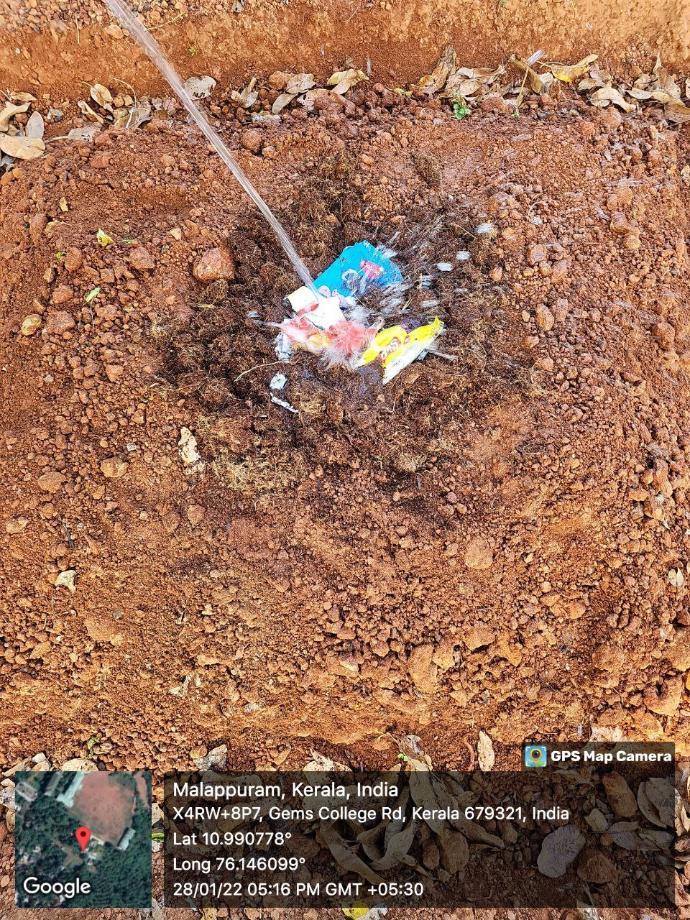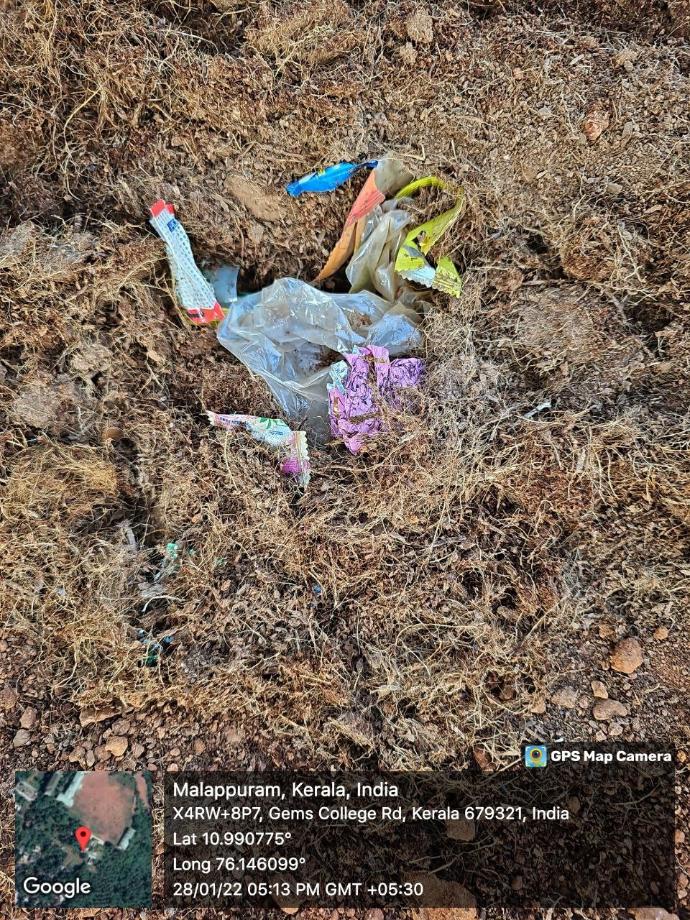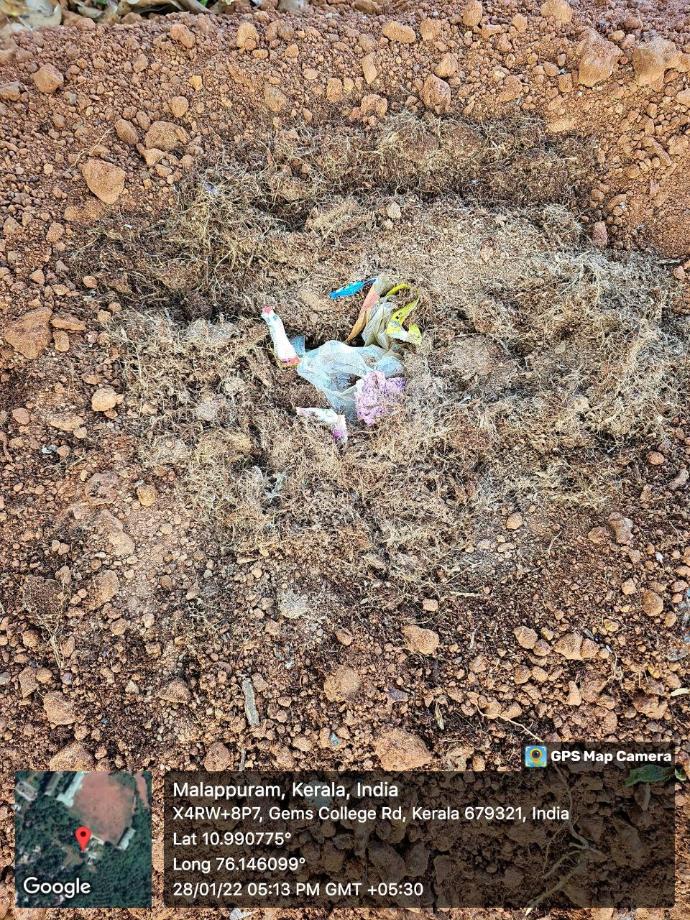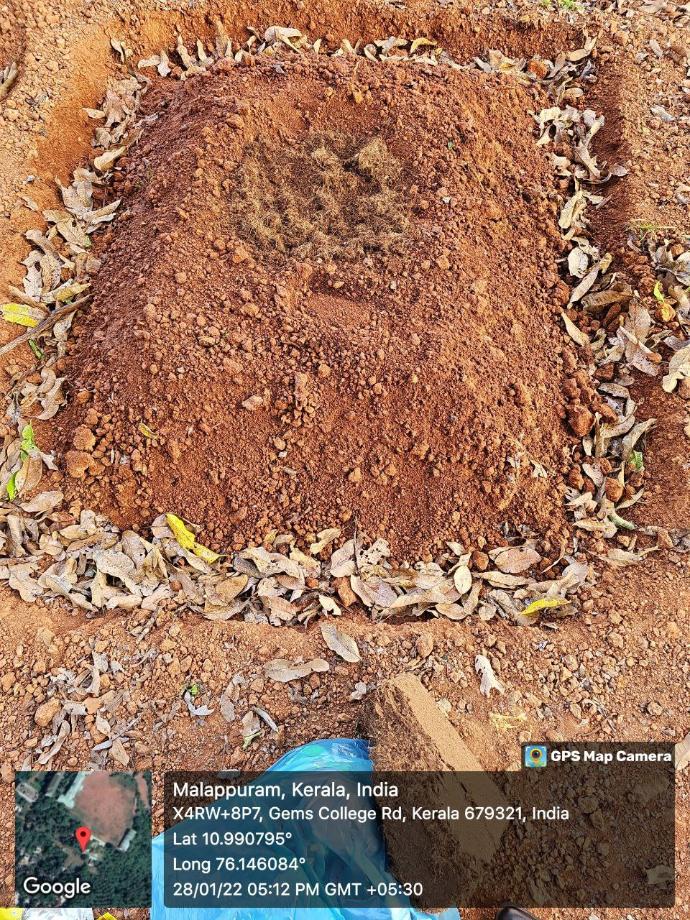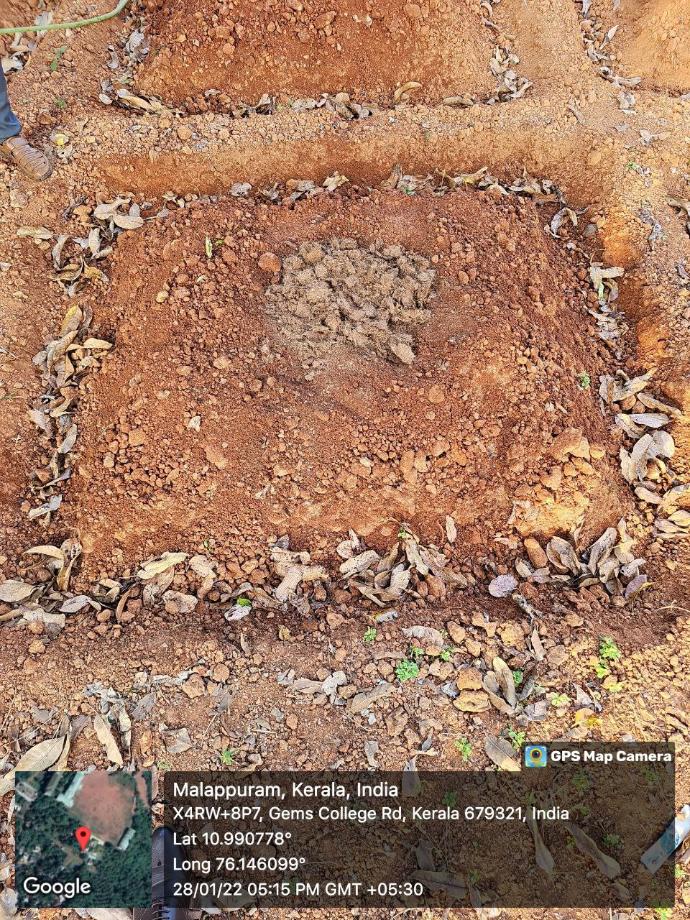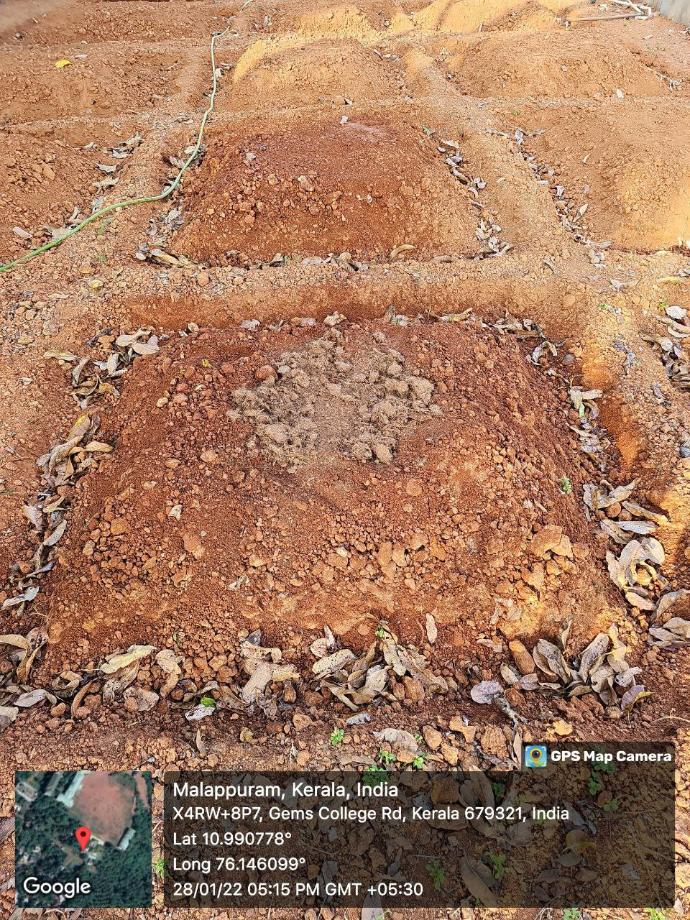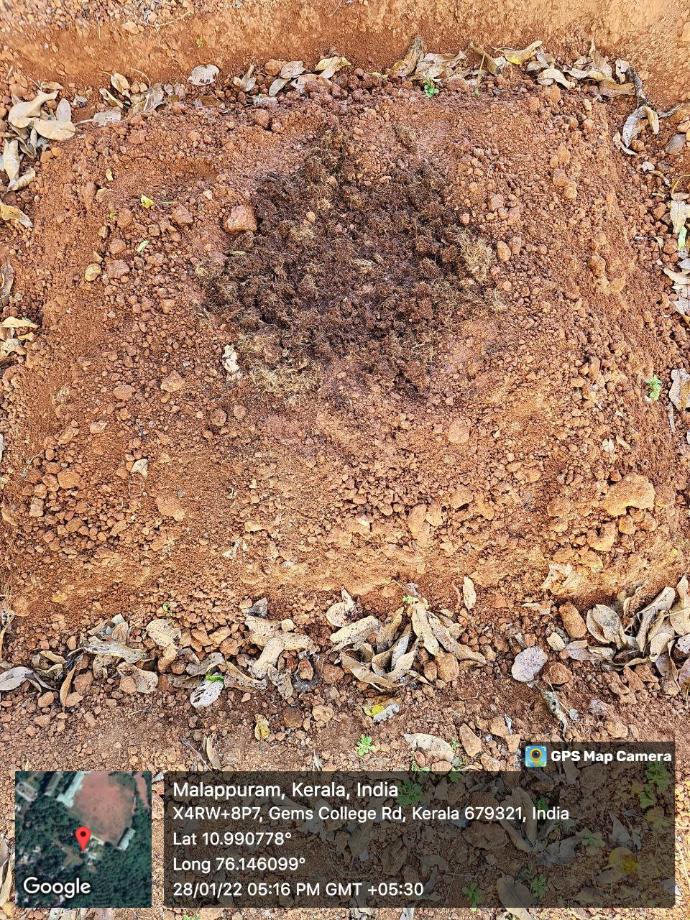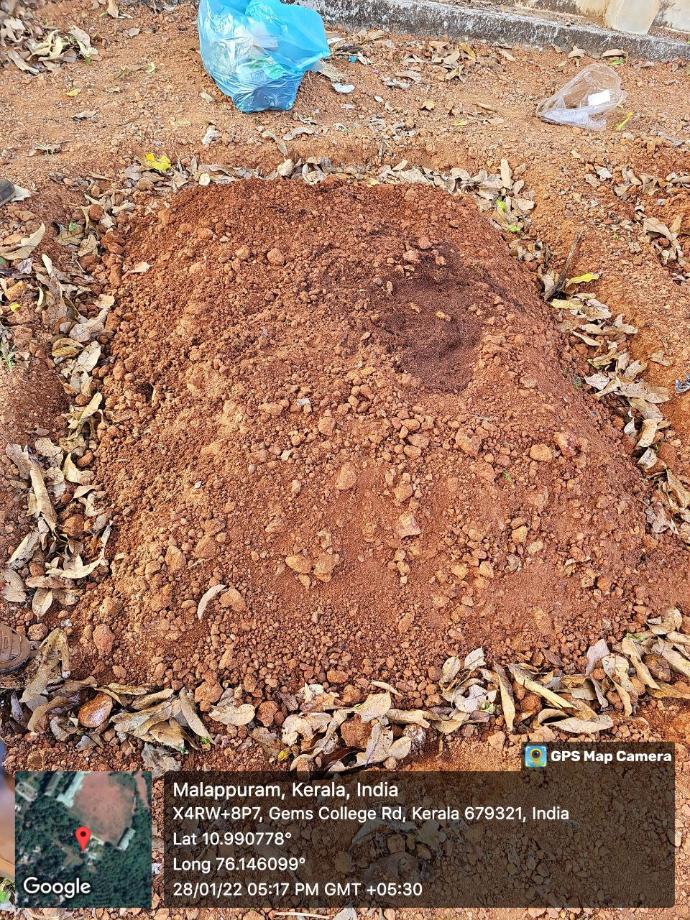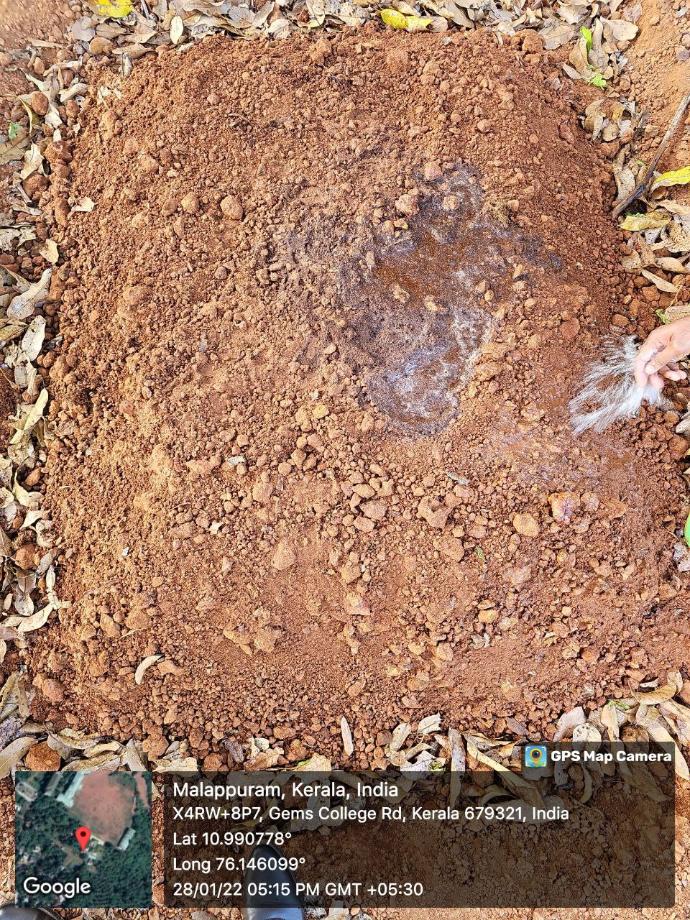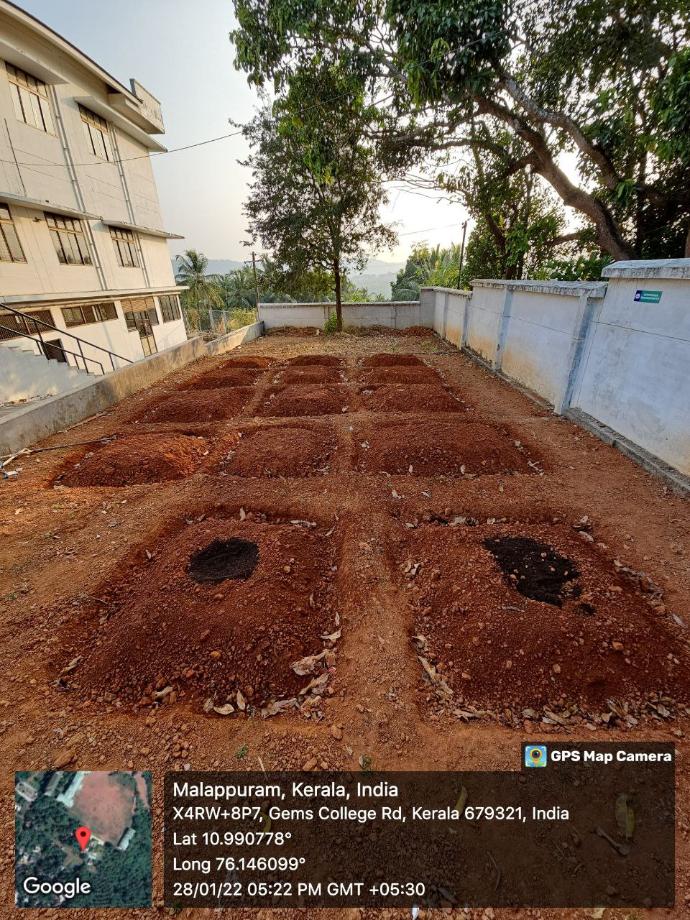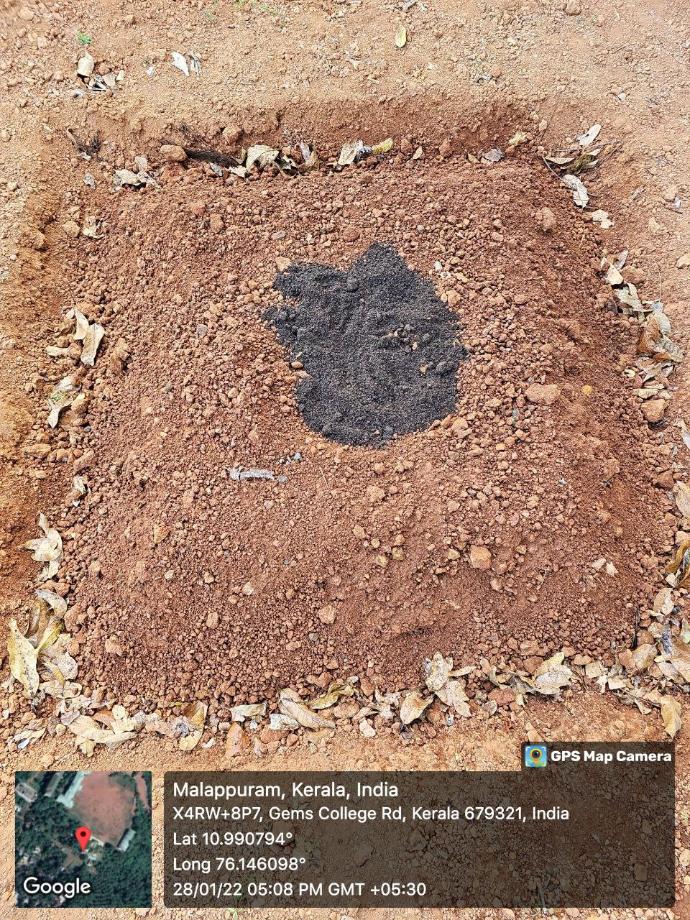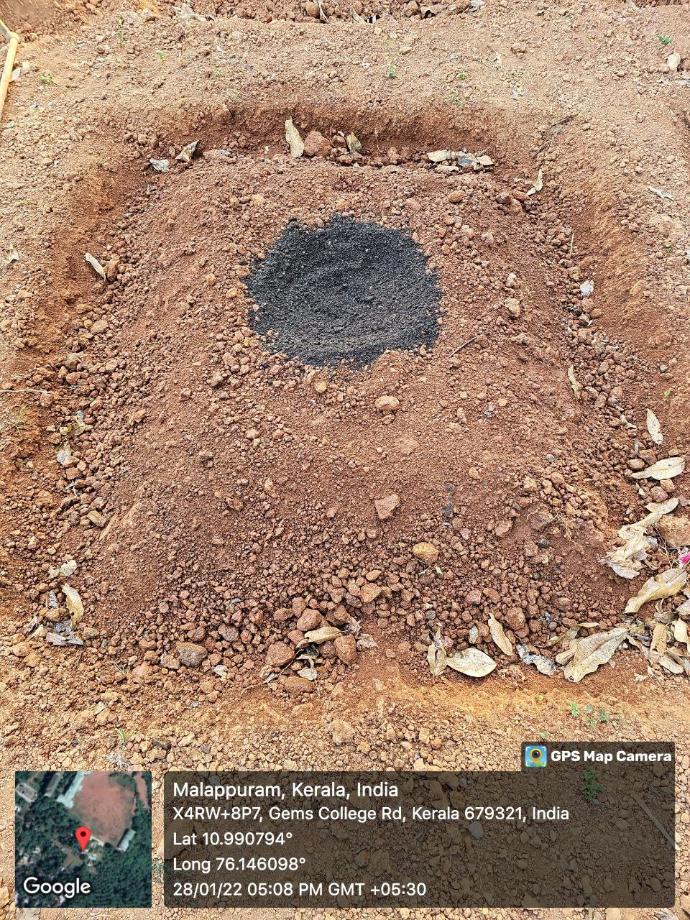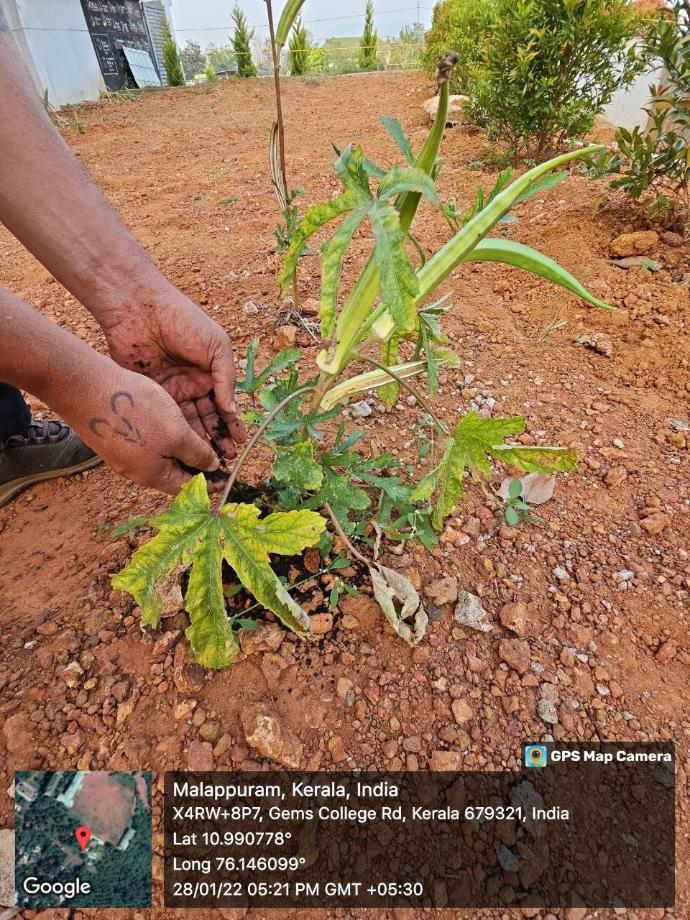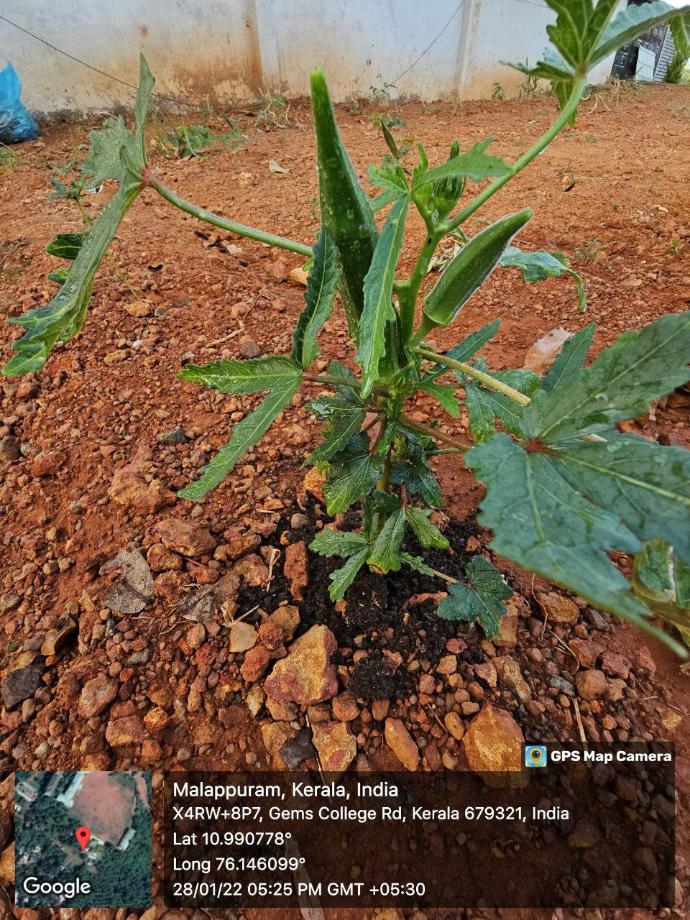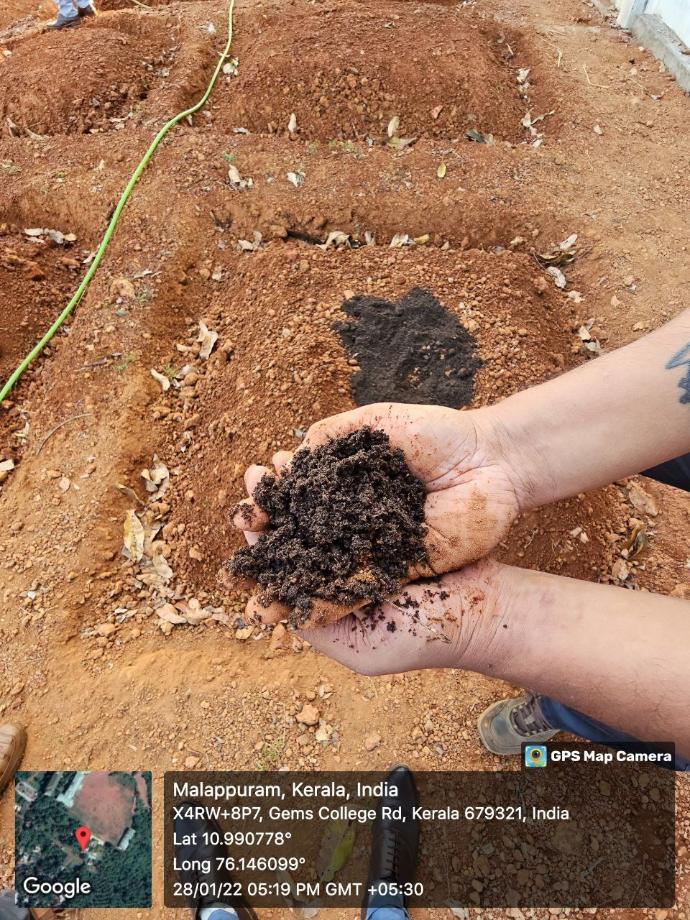INSTITUTIONAL BEST PRACTICE 1
TITLE OF THE PRACTICE
‘Prithvi Sudhar - No to Pollution,Yes to Solution’
OBJECTIVES OF THE PRACTICE
The main objective of the practice is to address the rapidly increasing levels of plastic pollution, not only by creating awareness on it, but by adopting possible solutions to the worldwide problem in our own way. The severity of plastic pollution can be understood when we know that the global plastic production has risen to 400 million tons per year. Since our institution is functioning in a semi-rural area, the plastic menace is ever on the increase in all households and villages around the campus. Hence being an institution of higher learning, we thought it is our most important duty to say aloud, a no to pollution and to find a solution for the problem. Beginning from our campus, the moral duty of the educated community is becoming more important when we read to UNEP report, which has predicted that the plastic pollution is expected to triple from around 11 million tons in 2016 to 29 million tons in 2040 . UNEP has already assessed that 85% of the total marine waste is due to plastic. Hence the UNEP slogan ‘Put people before profit’. Any action for finding a solution for plastic use will inspire the people to act for sustainable development goals.
We at GEMS felt that we are playing an inevitable role in joining hands with a worldwide fight against the menace of Plastics. This institution has taken up a big social responsibility by adopting a program entitled ‘Say No to Pollution and Yes to Solution’.
CONTEXTUAL FEATURES
It was our decision to begin the great mission from the campus itself and to spread it to the villages and towards towns in the neighbourhood. ‘Beat Plastic Pollution’ was the theme for World Environment Day 2018 and it’s an appeal to fight against the eco nightmare created by the development crazy world.The institution is an examination centre of distance education students of the district and it has become a strenuous task to dispose the litter being deposited in and around the campus as toffee covers, plastic carry bags, etc.
As it is unhygienic and as it is polluting the air, the institution decided to launch a campaign by name ‘No to pollution and Yes to solution’. The solution was to find out alternative methods as solution for the menace and pollution created by the plastics. Ultimately, the College resorted to use of the technology of bioremediation in which plastics are treated and converted into manure by co-composting with an agro-waste coir pith and eventually converting plastic into manure. This process was a well-researched scientific idea of Dr. Naveen Mohan, the Principal of the College who holds a process patent in the same work.
THE PRACTICE
The NSS volunteers over the years are continuing the practice-one batch after another. NSS volunteers collect the LDPE (Low Density Poly Ethylene) wraps during their campus cleaning drive once in every month and bring the waste to the treatment site inside our campus.
Then the plastic wraps and covers are put on soil heaps where they are mixed with bacterial solution prepared in our labs with added coir pith and cow dung.The heap is kept for 180 days and aeration is done by simply mixing the heap every week.After 180 days, the waste is seen converted to rich manure which can be utilized for bio farming purpose.
‘Prithvi Sudhar’ is a unique practice done by involving students and faculty members of the institution to combat the most dreaded pollutant-Plastics.
EVIDENCE OF SUCCESS
Waste reduction inside the campus is the main evidence and lush green growth of vegetables are another evidence of the success of the practice.
Through this practice, we could considerably reduce the presence of plastics inside the campus promoting bio farming practice. Another positive factor of the practice is that students are made aware of the harmful effects of plastics and they are made aware of the fact that using traditional scientific know-hows plastics can be completely converted to manure with help of bacteria.
Several local self government bodies has requested to extend the technical knowhow of the process.From next year onwards, the institution plans to implement the practice to nearby schools and other institutions, and there by rejuvenating the soil and giving back to our Mother Earth- ‘Prithvi Sudhar’.
PROBLEMS ENCOUNTERED
Since the institution is having laboratory back up, problems encountered in this practice is very less.
However, we encountered certain problems while carrying out this practice. The practice was started in the year 2017 and up to 2020 March, it was smooth and continuous. At the time of pandemic, due to lock down the process was left without laboratory back up and mixing up. Later when the institution re-started after lockdown the practice was revived. Another problem encountered was, since the practice was field based, the changing climatic condition like recurring rain and temperature variation slowed the biodegradation process


